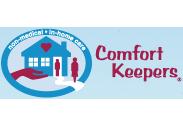Good nutrition and regular physical activity in healthy senior adults helps maintain wellbeing; in fact, they can be major determinants of successful aging. For those senior adults with chronic conditions, however, good nutrition and exercise are critical for managing their conditions and for promoting recovery following hospital stays. Chronic conditions, such as heart disease, diabetes, and others, are a growing health problem with the older population. Currently, 80% of seniors aged 65 or older have at least one chronic condition, and of those, half have two or more. The impact of good nutrition becomes more evident when you consider that five of the top eight causes of death are directly influenced by diet. Some research also indicates that lack of physical activity may actually predispose individuals to chronic conditions. With nutrition and physical activity being such strong influences on health, how can friends, family, caregivers, and healthcare professionals encourage older adults to eat better and be more active to promote recovery after hospitalization?
Education May Be the Key
Older adults’ fear and uncertainty about what they can and cannot do after a hospital episode are strong contributors to hospital readmissions. Addressing these fears through education can empower older individuals to take action that will help reduce the risk of hospital readmission and improve their quality of life. Most people in general associate malnutrition with lack of food, but in seniors this may not always be the case. Levels of nutrition in seniors are impacted by many factors including types of food eaten, water intake, and more. Educating older individuals and family members on the importance of hydration and specific foods that can help seniors meet their nutritional requirements can help them make the necessary changes to manage their conditions. Additionally, many older individuals who have been hospitalized for conditions such as heart disease may be reluctant to engage in physical activity out of fear that exertion may cause a recurrence. Ensuring these individuals know exactly what they can and should physically do for recovery can help alleviate these fears. Assuring seniors are aware of the positive outcomes of exercise and its direct impact on recovery can be a motivator for change. For example, individuals with chronic obstructive pulmonary disease (COPD) who engage in regular moderate or vigorous exercise have been shown to have significantly lower rates of hospital readmission, and heart patients who participate in formal exercise programs decrease their risk of death by 25%. Family, friends, and caregivers can also support the older adult in his or her recovery by joining the individual for nutritious meals, or even helping prepare them, and participating in physical activities the senior enjoys. As with any person attempting to change lifestyle habits, support can help older adults obtain the resources they need to make changes and provide the motivation for them to follow through.
Fast Fact: Physical inactivity contributes to at least 17 unhealthy conditions, which are either chronic diseases or contributors to chronic diseases.



